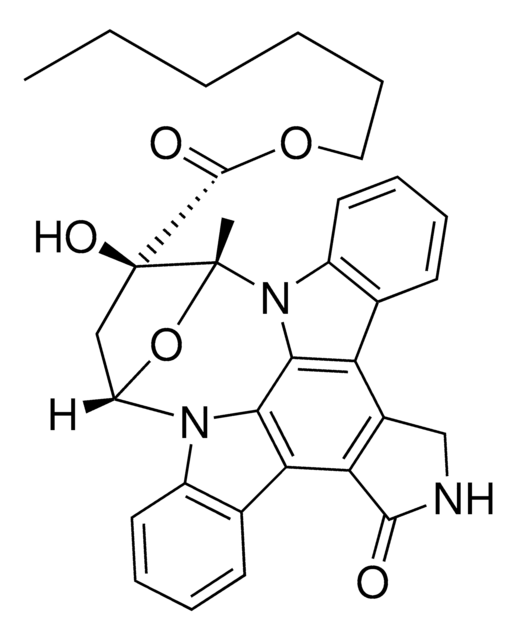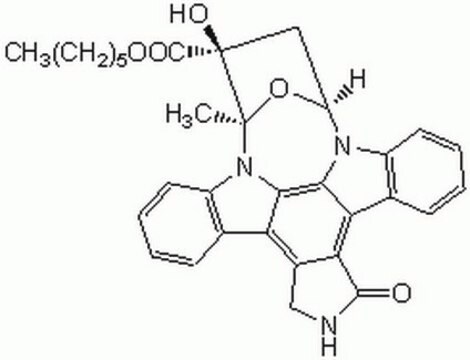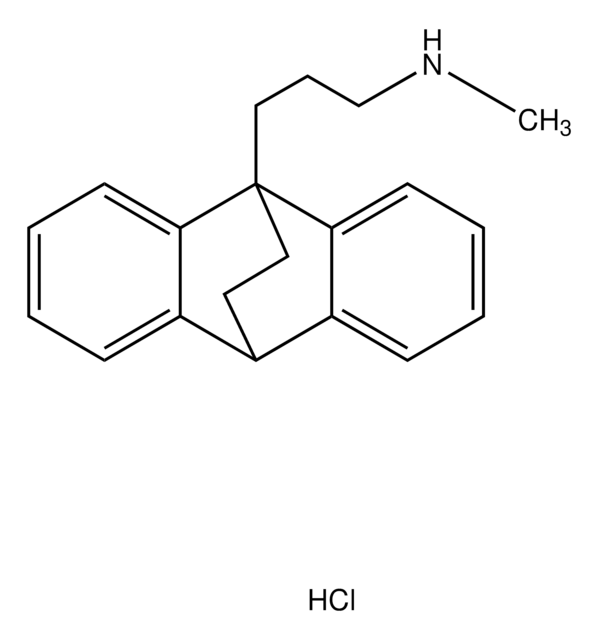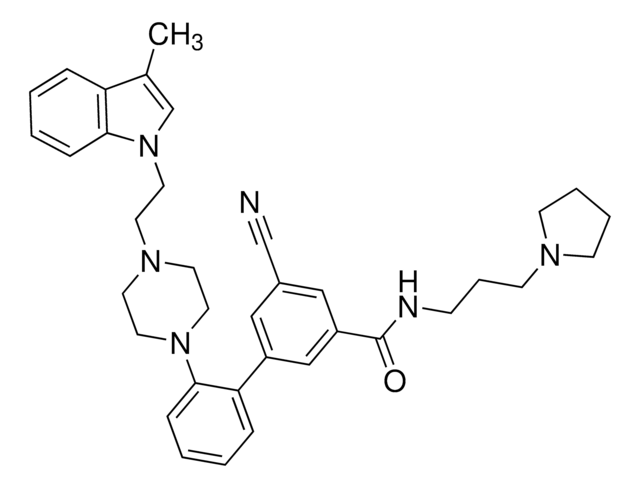P0300
Protein Kinase Inhibitor from rabbit
≥85% (HPLC)
About This Item
Recommended Products
biological source
rabbit
Assay
≥85% (HPLC)
form
powder
mol wt
2.2 kDa
composition
Peptide content, ≥70%
solubility
water: 1 mg/mL, clear, colorless
storage temp.
−20°C
SMILES string
CCC(C)C(NC(=O)C(C)NC(=O)C(CC(N)=O)NC(=O)C(CCCNC(N)=N)NC(=O)C(CCCNC(N)=N)NC(=O)CNC(=O)C(NC(=O)C(CCCNC(N)=N)NC(=O)CNC(=O)C(CO)NC(=O)C(C)NC(=O)C(NC(=O)C(Cc1ccccc1)NC(=O)C(CC(O)=O)NC(=O)C(C)NC(=O)C(Cc2ccc(O)cc2)NC(=O)C(NC(=O)C(N)C(C)O)C(C)O)C(C)CC)C(C)O)C(=O)NC(Cc3cnc[nH]3)C(=O)NC(CC(O)=O)C(O)=O
InChI
1S/C94H148N32O31/c1-11-42(3)70(124-85(150)58(31-50-19-14-13-15-20-50)117-84(149)61(35-67(135)136)116-74(139)44(5)110-81(146)57(32-51-24-26-53(131)27-25-51)119-90(155)73(49(10)130)126-86(151)69(96)47(8)128)88(153)112-45(6)75(140)122-63(40-127)77(142)107-38-65(133)114-55(22-17-29-105-93(99)100)80(145)125-72(48(9)129)87(152)108-39-66(134)113-54(21-16-28-104-92(97)98)78(143)115-56(23-18-30-106-94(101)102)79(144)118-60(34-64(95)132)82(147)111-46(7)76(141)123-71(43(4)12-2)89(154)120-59(33-52-37-103-41-109-52)83(148)121-62(91(156)157)36-68(137)138/h13-15,19-20,24-27,37,41-49,54-63,69-73,127-131H,11-12,16-18,21-23,28-36,38-40,96H2,1-10H3,(H2,95,132)(H,103,109)(H,107,142)(H,108,152)(H,110,146)(H,111,147)(H,112,153)(H,113,134)(H,114,133)(H,115,143)(H,116,139)(H,117,149)(H,118,144)(H,119,155)(H,120,154)(H,121,148)(H,122,140)(H,123,141)(H,124,150)(H,125,145)(H,126,151)(H,135,136)(H,137,138)(H,156,157)(H4,97,98,104)(H4,99,100,105)(H4,101,102,106)
InChI key
AXOXZJJMUVSZQY-UHFFFAOYSA-N
Looking for similar products? Visit Product Comparison Guide
Amino Acid Sequence
Biochem/physiol Actions
Features and Benefits
Storage Class Code
11 - Combustible Solids
WGK
WGK 3
Flash Point(F)
Not applicable
Flash Point(C)
Not applicable
Personal Protective Equipment
Certificates of Analysis (COA)
Search for Certificates of Analysis (COA) by entering the products Lot/Batch Number. Lot and Batch Numbers can be found on a product’s label following the words ‘Lot’ or ‘Batch’.
Already Own This Product?
Find documentation for the products that you have recently purchased in the Document Library.
Our team of scientists has experience in all areas of research including Life Science, Material Science, Chemical Synthesis, Chromatography, Analytical and many others.
Contact Technical Service








